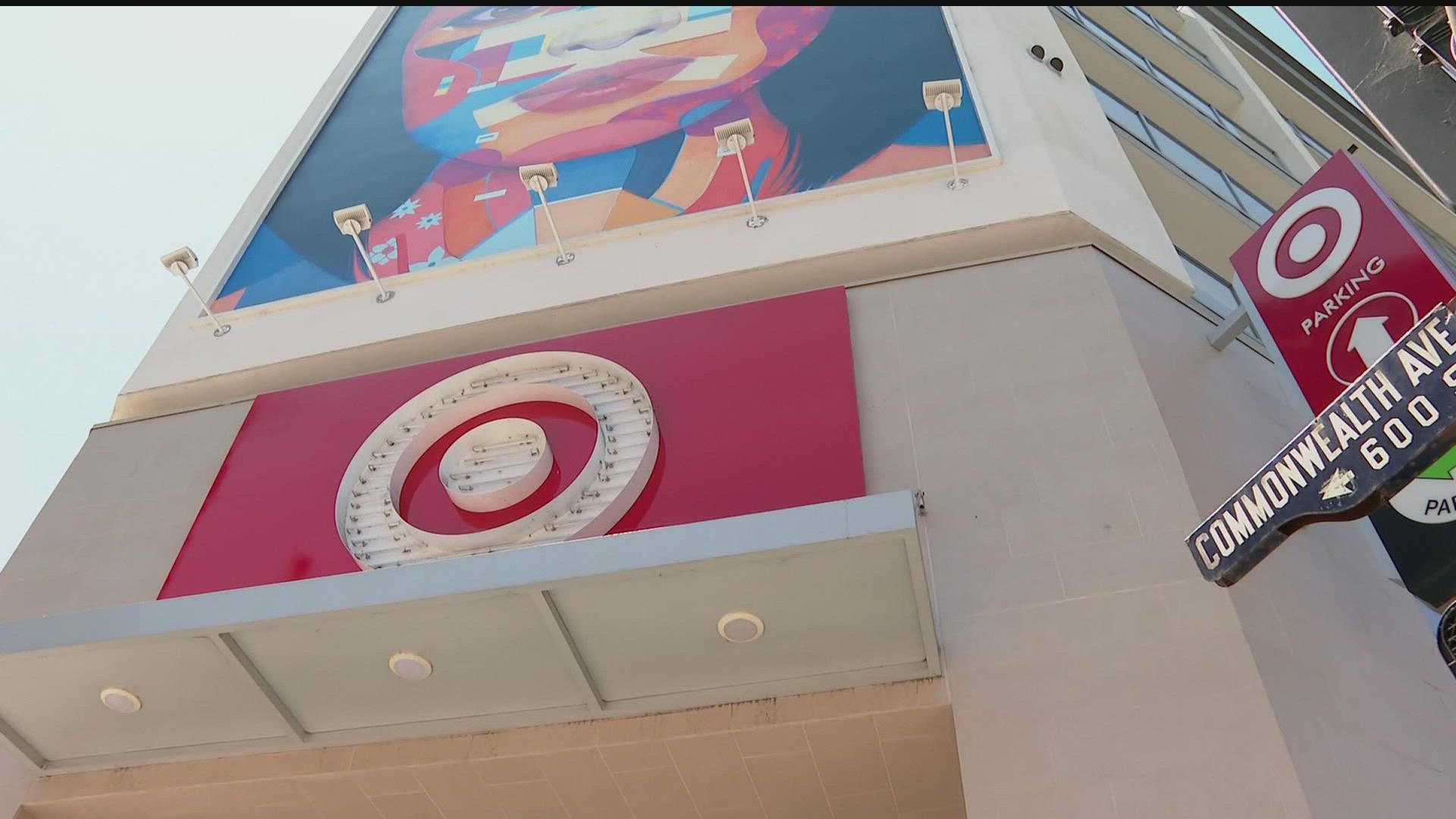BROOKLYN PARK, Minn. — It was a bad day on Wall Street as stocks plummeted yet again and experts say Target's disappointing quarterly earnings report contributed to the tailspin.
Target released its first-quarter numbers Wednesday morning, revealing the Minnesota retailer took a big hit from higher costs despite brisk sales. In fact, profits for many major retailers have come under pressure from both surging inflation and stubborn clogs in the global supply chain.
According to Target's report, the corporation's net income fell roughly 52% from a year ago to $1.01 billion, or $2.16 per share, in the quarter that ended April 30. Per-share earnings adjusted for one-time costs were $2.19, far from Wall Street projections of $3.07 per share expected by industry analysts polled by FactSet.
That is also below last year's first quarter profit of $2.09 billion.
“Throughout the quarter, we faced unexpectedly high costs, driven by a number of factors, resulting in profitability that came in well below our expectations, and well below where we expect to operate over time," CEO Brian Cornell said in a prepared statement.
Things have changed significantly from the environment the company was experiencing just 13 weeks ago, Cornell said, and the company did not project the significant cost increases in freight and transportation.
Those costs will be $1 billion higher this year than the company had anticipated, and Target does not expect those costs to ease this year.
Analyst Mark Bergen, who is the James D. Watkins chair at the University of Minnesota's Carlson School of Management, also explained which factors are driving the "unexpectedly high costs" Cornell described.
"Increased costs of logistics, increased costs of fuel … increased costs from manufacturers because all of the branded products are raising their prices, and Target has to decide how much of that to pass through and how much of that they're willing to take on and kind of share the pain of inflation," Bergen said.
Bergen says changes in customer shopping habits also contributed to low profits.
"It's about changes in customer spending away from discretionary items towards more necessities, I'm guessing also towards things that have more sales, discounts, promotions," Bergen said. "All things you do when your budget starts to get strapped. It's really a natural reaction to inflation."
During a media call with reporters on Tuesday, executives with the Minneapolis company said that customers remain financially healthy and that the pattern of spending is returning to something more similar to before the pandemic.
In fact, sales at Target stores open at least a year increased 3.4% during the latest quarter. It posted an 18% increase in the same quarter last year. Online sales increased 3.2%, following growth of 50.2%. Same-day services including picking up online orders curbside increased 8% this year. More than 95% of Target’s first quarter sales were fulfilled by its stores.
Sales growth was driven by items that shoppers frequently purchase like food and beverages, beauty and household essentials.
Americans are buying fewer TVs, bicycles and kitchen appliances than they did during the two years of the pandemic. Those sales have shifted to luggage, for example as people begin traveling again. That unexpectedly rapid shift led to higher markdowns and an increase of bulky items that are not selling as quickly as Target had expected.
"Imagine a whole bunch of items that are very low margin for Target," Bergen explained. "Maybe eggs or milk or something and everybody doubles their purchase of that, but then there's an item like a TV and Target makes a reasonable margin on that and only half of people buy that. So the mix of things being sold must have changed on them as well."
Target's report follows quarterly results from Walmart Tuesday and there were many similarities between the two, including an early sell-off of stock. Shares of Target Corp. plunged 24% before the opening bell Wednesday. They dropped more then 25% at bell close.
The last time shares fell so hard was on Oct. 19, 1987, one of the worst days in history for U.S. markets, when the Dow fell more than 20%. However, Target shares then cost less than $4. On Tuesday, shares of Target tumbled $51.85, hitting $163.43 with about an hour before the markets open.
Watch more local news:
Watch the latest local news from the Twin Cities in our YouTube playlist:

